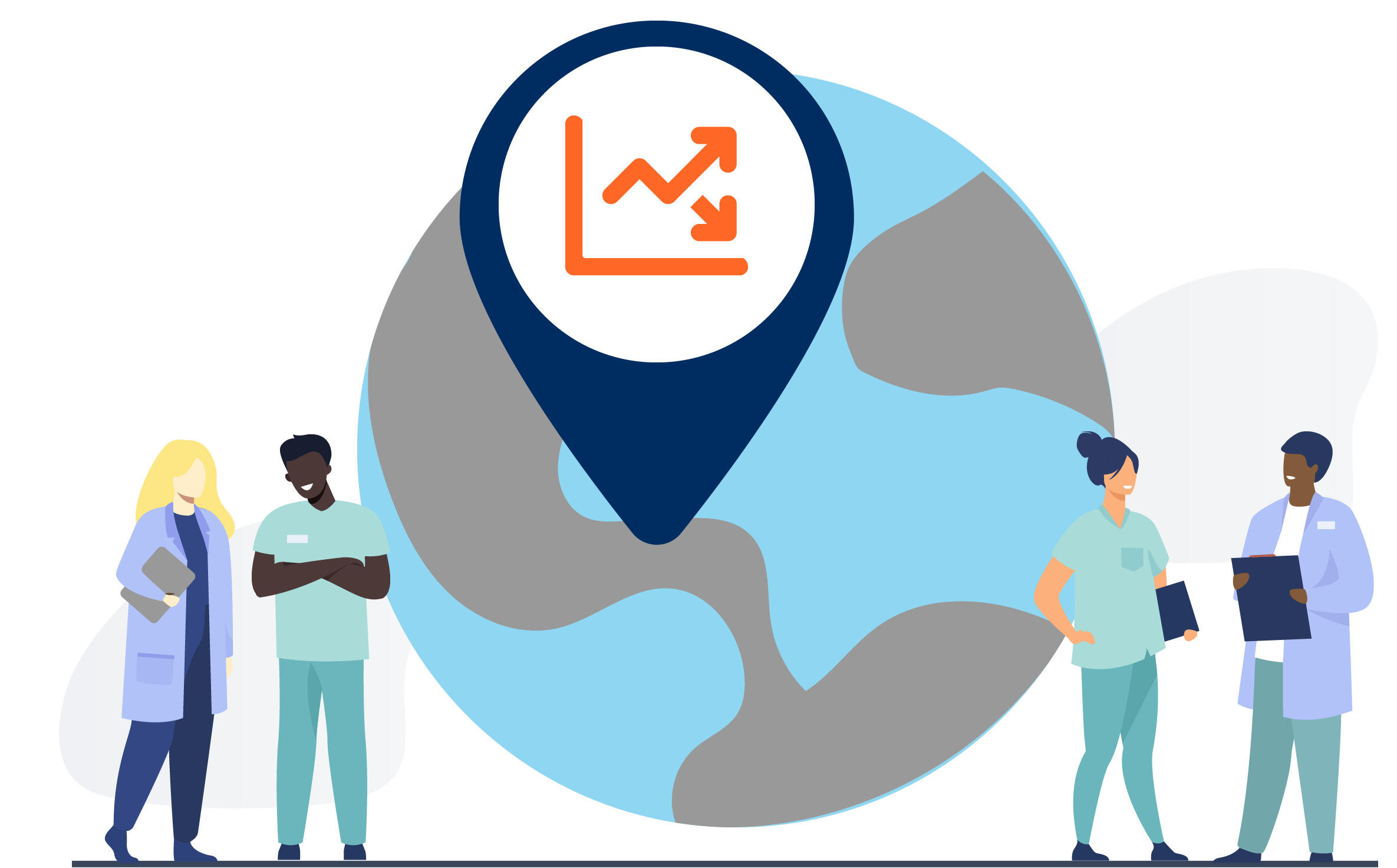Rotation overview
Welcome to the Virtual Global Health Foundations Elective!
The term Global Health may mean different things in different contexts but has emerged as a distinct field that encompasses medicine, public health, policy, research, ecosystems, human rights, and ethics. At its core, it recognizes the extreme inequalities across the globe, affecting people and populations. The aim of this elective is to explore major concepts and themes in the discipline of Global Health. Many of these concepts and themes may be familiar to you from your studies and experiences in the U.S. healthcare system; this course aims to allow you to think about what you know already and apply it to new and culturally different contexts.
While this elective is useful for any student, those students who plan to do an International Away Elective are encouraged to complete this elective first, to better prepare you for your international experience. And while this elective occurs on a rolling basis and asynchronously, I hope to begin a longitudinal conversation and grow the community of colleagues interested in Global Health at the College of Medicine.
Objectives for the elective as a whole
- Explore the global burden of disease and common methods for describing and measuring health around the world
- Identify and discuss ethical dilemmas and considerations in global health including research, education, and institutional partnerships
- Use case studies and assignments to develop an awareness of how cultural, social, economic, environmental, and political influences shape the health of systems and populations in the student's location of interest. (Students who are planning an international away elective are encouraged to use the country/region/institution of their site for these assignments)
- Compare the relative influence of communicable diseases, emerging threats, and non-communicable diseases around the world
Course modules
The course is divided into the following thematic modules that are meant to be done in sequence. Each module has its own set of learning objectives.
Rotation requirements
This is a Pass/Fail Elective. The requirement for passing the elective is to engage with the material. There will be several methods used for engagement in this interactive asynchronous elective:
-
- External online modules for which you will be issued a certificate upon completion. That certificate must be submitted to the course director.
- Discussion board hosted on Slack. There will be prompts within the modules directing you to topics on the Slack channel. The aim of the discussion board is to create a longitudinal discussion among colleagues about issues in Global health as part of the larger community of students and physicians interested in global health at the College of Medicine.
-
- Research activities. While there are some key topics that are applicable worldwide, every country, regions within countries, and populations within countries have unique strengths and weaknesses that determine how these issues are manifested. Each student should identify a country (region within a country) of interest at the start of the course. If you are planning an international away elective, you should use that location. Within some modules, students will be assigned small research activities to explore how the particular concepts apply in the region of interest. The research assignments will be completed or uploaded within the course webpage.
The course website will direct all of the engagement assignments. There will be no assignments populated in E.Flo MD.
A mid-rotation check-in with the course director is required
If you haven't scheduled one already, please do so now.
Expectations
Most of the modules are designed as:
- Read
- Watch
- Listen
- Do
- Reflect
- Complete
- explore
- Apply
You will be assigned reading or multimedia material to introduce or explain topics, then given a task to do as a way to apply the knowledge or explore the topic in a particular context.
Each module will have its own engagement assignments; refer to the course website for instructions.
This course offers an opportunity for a lot of self-directed learning, meaning that you will learn more, the more effort you put into the engagement activities. You are encouraged to contact the course director for any questions about the material or the course requirements while working your way through the modules. Technology issues should be directed to MedTech through usual channels (e.g., MedTech Slack, email).
Learning support
- external web modules
- More
- Ethical Challenges in Short-Term Global Health Training.
- Global Health eLearning Center. (Students will need to create a login.)
- Jacobsen, Kathryn H. Introduction to Global Health. Jones & Bartlett Learning, LLC, 2022. ProQuest Ebook Central.
- Skolnik, Richard. Global Health 101. Jones & Bartlett Learning, LLC, 2019. ProQuest Ebook Central.
For students interested in Global Health who would like additional references on the field, here are some references and organizations of interest that are not specifically linked to individual modules in the course:
-
- First, Do No Harm: A Qualitative Research Documentary. This video is highly recommended for students planning to engage in short-term international experiences at some point during their training or career.
-
- Kidder T. Mountains Beyond Mountains. Random House Trade Paperbacks; 2004.
-
-
- In many ways, Dr. Paul Farmer popularized the field of global health and provided an example to a generation of what can be done to address inequality. This biography provides a excellent anchor to the life and work of Paul Farmer, which may be helpful as an ‘overview’ in addition to reading some of Dr. Farmer’s publications.
-
-
- Farmer P, Saussy H. Partner to the Poor: A Paul Farmer Reader. (Saussy H, ed.). University of California Press; 2010. doi:10.1525/9780520945630
-
-
- A collection of essays and excerpts from Dr. Farmer’s publications
-
-
-
- A professional organization for universities around the world engaged in addressing global health challenges. Opportunities for students and trainees to be on working groups, present at conferences, and connect to other institutions involved in global health. There are several free educational programs available.
-
-
- Reasoning without Resources. For students who plan to participate in direct patient care in an international and low/low-middle income country, consider reviewing some of the case studies in Reasoning without Resources as an introduction to how you might need to adjust your clinical approach in areas without the diagnostic and therapeutic interventions you are used to.
- Considering a career in Global Health? Check out this webinar recording from the CDC: "The Landscape of Global Health.”
- Marantz DE. African Friends and Money Matters: Observations from Africa. 2nd ed. Summer Inst Linguistics; 2015.
-
-
- An interesting examination of many of the common cultural experiences and friction that arise when Westerners are living/working in African through the lens of economic structure and its relation to human behavior.
-
A note on data use
Data gathered on this website and on Slack will be used to assess engagement for the purposes of the Pass/Fail grade and for feedback for the course director on the efficacy of the materials. It may be used for future educational scholarship.

